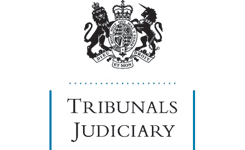|
Notes:
|
Reported as [2012] AACR 1.
Jurisdiction of Information Commissioner and tribunal – whether extends to determination of public law questions of reasonableness
The complainant, Mr Morrissey, had made a request under the Freedom of Information Act 2000 to the Office of Communications (OFCOM), a regulator and public authority, to publish individual broadcasters’ detailed equal opportunities returns. OFCOM was required by section 337 of the Communications Act 2003 to publish arrangements made in pursuance of equal opportunities requirements, and had published aggregate summary data. OFCOM refused to disclose the desired information, relying on section 44 of the Freedom of Information Act 2000, which provides an exemption from disclosure where it is prohibited under any enactment, and section 393 of the 2003 Act, which bars disclosure without consent except for the purpose of facilitating the carrying out by OFCOM of any of its functions. Mr Morrissey complained to the Information Commissioner, who adopted the approach of the Information Tribunal in Hoyte v Civil Aviation Authority (EA/2007/0101), and decided that he should consider whether OFCOM had acted reasonably in declining to disclose the information in pursuance of its functions under the 2003 Act. The Commissioner concluded that OFCOM had acted reasonably, and Mr Morrissey’s complaint failed. On appeal by Mr Morrissey, the First-tier Tribunal, with minor corrections, agreed with the Information Commissioner’s approach. OFCOM appealed to the Upper Tribunal, which considered it appropriate to hear and determine the appeal as it appeared to raise two issues of general importance, relating to the jurisdiction of the Commissioner and, on appeal, the tribunal. It was argued for OFCOM, relying on O’Reilly v Mackman [1983] 2 AC 237, that a challenge to the reasonableness of OFCOM’s decision could be brought only by way of judicial review in a court exercising public law jurisdiction. For the Commissioner it was asserted, relying on Boddington v British Transport Police [1999] 2 AC 143 and other cases, that the modern approach required a presumption that it is for the Commissioner (subject to an appeal to the tribunal) to determine whether the only reasonable course that is open to the public authority in the circumstances of a particular request is to disclose the requested information. If there were no such presumption the question was whether, on their true construction, relevant statutory provisions empowered, and indeed required, the Information Commissioner to consider a public law question of reasonableness.
Held, allowing the appeal to a limited extent, that:
1. while the authorities show that there is no presumption that public law questions can only be raised by invoking the courts’ supervisory jurisdiction, that does not mean that there is a presumption that the Information Commissioner, who is a regulator and not a tribunal, can determine public law issues, and the First-tier Tribunal’s functions are limited by reference to the functions of the Commissioner (paragraphs 38 to 47);
2. the relevant functions of the Commissioner for present purposes were limited to making a decision whether, in any specified respect, a request for information made by a complainant to a public authority had been dealt with in accordance with the requirements of Part I of the 2000 Act. That might well require a view to be taken on the construction of a potentially relevant statutory bar on disclosure in other legislation, but in the circumstances of the present case it did not extend to asking the questions which might be asked on the subject of reasonableness by a court of supervisory jurisdiction examining a challenge to OFCOM’s failure to exercise powers available to it under the 2003 Act: Oxfam v Revenue and Customs Commissioners [2009] EWHC 3078 (Ch) distinguished (paragraphs 52 to 63);
3. the tribunal in Hoyte had therefore erred in proceeding on the basis that either it or the Commissioner had a general jurisdiction to determine whether a public authority had acted unreasonably when exercising a discretion not to disclose information, and the Information Commissioner and tribunal in the present case had erred in adopting that approach. However, that error of law was immaterial to the outcome in the present case as the Commissioner was correct to conclude that OFCOM had dealt with the request for information in accordance with Part 1 of the 2000 Act (paragraphs 1 and 62).
|
